Clarifying Today's Mortgage Rates

If you're closely monitoring mortgage rates due to their influence on your borrowing expenses, you might be curious about their future trajectory. Regrettably, predicting mortgage rates is an arduous task as they are notoriously difficult to forecast.
However, there is one aspect that has historically served as a reliable indicator of rate movements, and that is the correlation between the 30-Year Mortgage Rate and the 10-Year Treasury Yield. Below is a graph depicting the trends of these two metrics since Freddie Mac began recording mortgage rates in 1972:
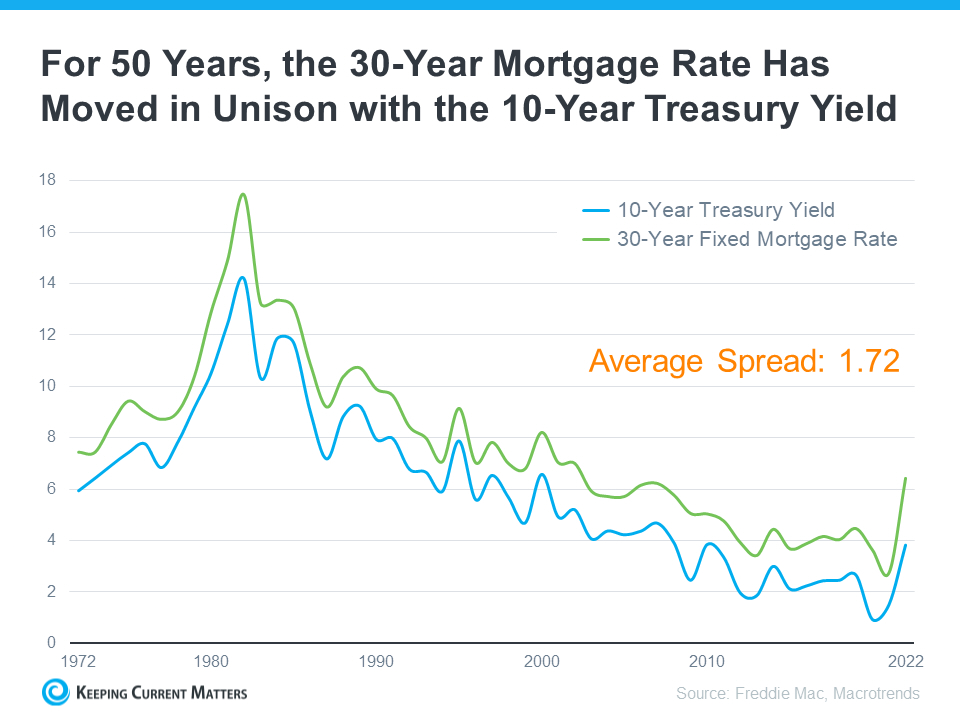
As evidenced by the graph, the historical average difference between the 30-Year Mortgage Rate and the 10-Year Treasury Yield over the past five decades has been 1.72 percentage points, commonly referred to as 172 basis points. By observing the trend line, it becomes evident that when the Treasury Yield experiences an upward trend, mortgage rates typically respond accordingly. Conversely, when the Yield drops, mortgage rates tend to follow suit. While this synchronized movement is usually the case, it is important to take note that recently, the gap between the two has been widening significantly beyond the customary 1.72 percentage points, as illustrated in the graph below:
The graph illustrates the average difference between the 30-Year Mortgage Rate and the 10-Year Treasury Yield over the past five decades, which stands at 1.72 percentage points, commonly referred to as 172 basis points. By examining the trend line, it becomes apparent that an upward trend in the Treasury Yield is often mirrored by an increase in mortgage rates, and conversely, a drop in the Yield corresponds to a decline in mortgage rates. While this synchronicity is typically observed, it is crucial to take note of the recent development: the gap between the two has been expanding well beyond the historical norm, as demonstrated in the graph below:
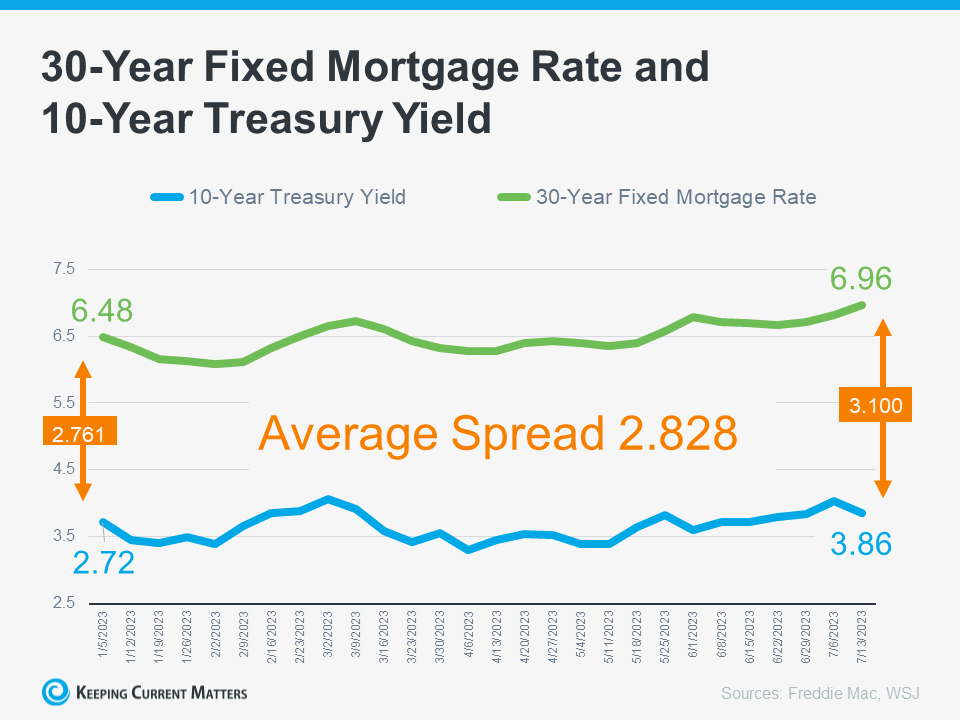
If you find yourself wondering why the spread is surpassing its usual average, the primary reason lies in the uncertainty prevailing in the financial markets. Various factors, such as inflation, other economic indicators, and decisions made by the Federal Reserve (The Fed), are exerting their influence on mortgage rates and contributing to the widening spread.
Why Does This Matter for You?
While it might seem highly technical and detailed, understanding the spread is essential for homebuyers like yourself. It implies that, considering the typical historical difference between the two metrics, there is potential for mortgage rates to improve today.
Furthermore, experts believe that this is the trajectory ahead, as long as inflation continues to subside. Odeta Kushi, Deputy Chief Economist at First American, provides an explanation:
"It can be reasonably anticipated that the spread and, consequently, mortgage rates will decrease in the latter half of the year if the Federal Reserve eases its monetary tightening measures. However, it is improbable for the spread to revert back to its historical average of 170 basis points, as certain risks are expected to persist."
Correspondingly, an article from Forbes highlights:
“Though housing market watchers expect mortgage rates to remain elevated amid ongoing economic uncertainty and the Federal Reserve’s rate-hiking war on inflation, they believe rates peaked last fall and will decline—to some degree—later this year, barring any unforeseen surprises.”
"Housing market analysts anticipate that mortgage rates will likely stay relatively high due to persistent economic uncertainty and the Federal Reserve's efforts to combat inflation through rate hikes. However, they are of the opinion that rates reached their peak last fall and are expected to decrease to some extent later this year, unless unexpected events arise."
Bottom Line
Whether you're a first-time home buyer or a current homeowner considering a move to a more suitable property, it's crucial to stay informed about mortgage rate developments and the predictions made by experts in the upcoming months.
Categories
Recent Posts
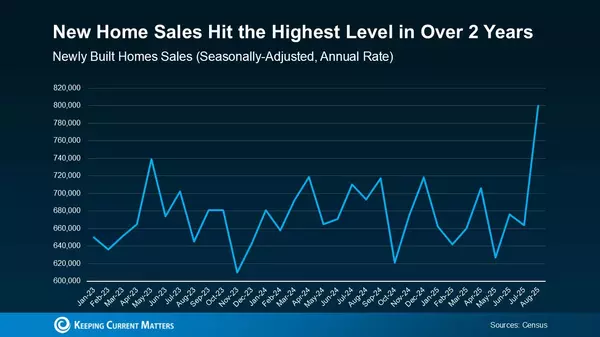
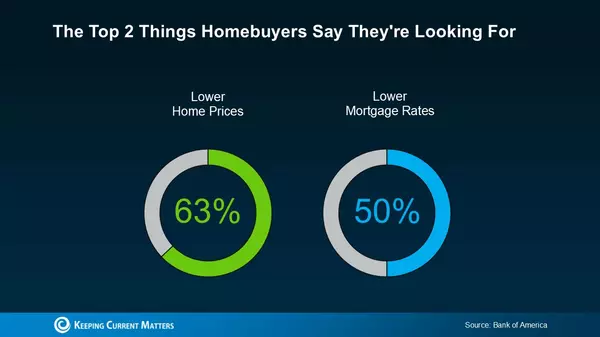
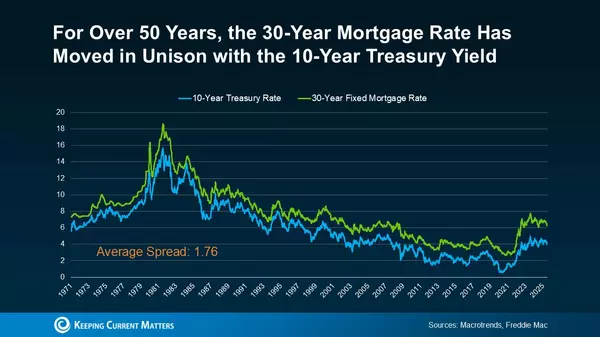
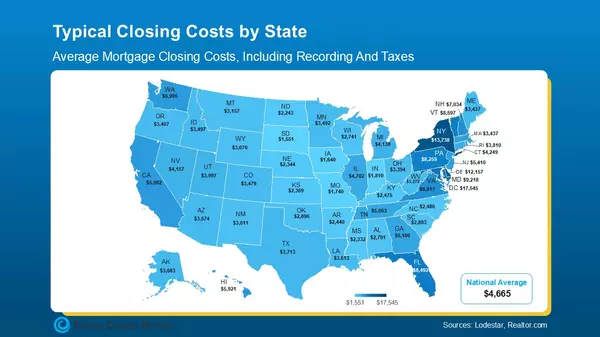
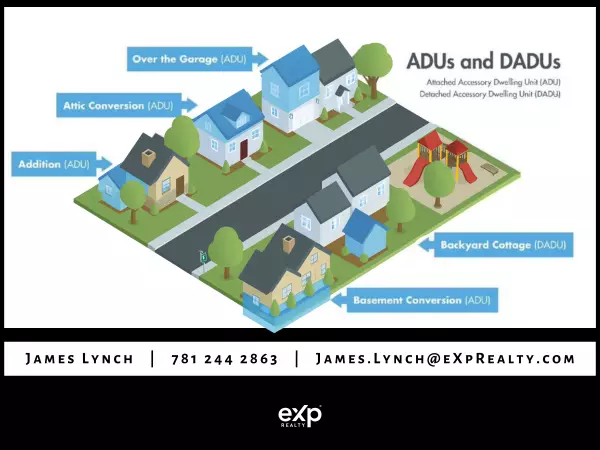

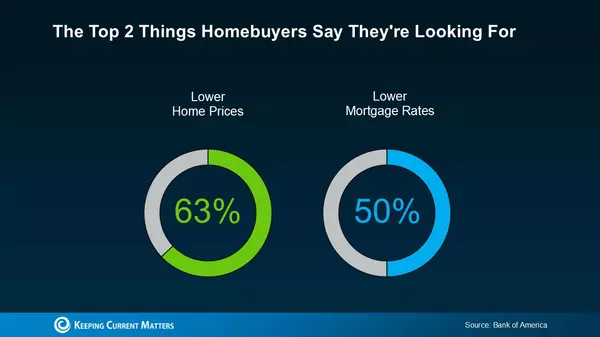
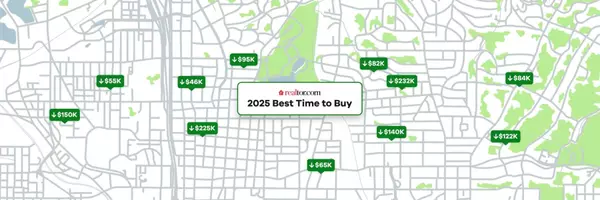
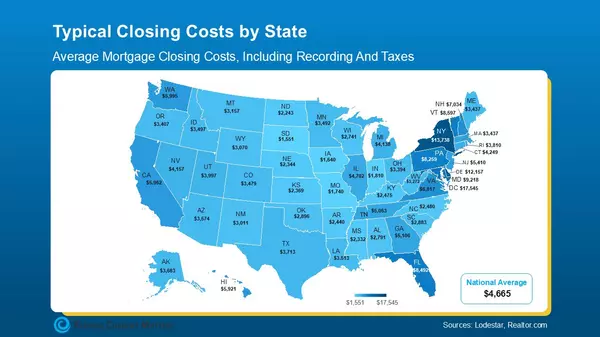
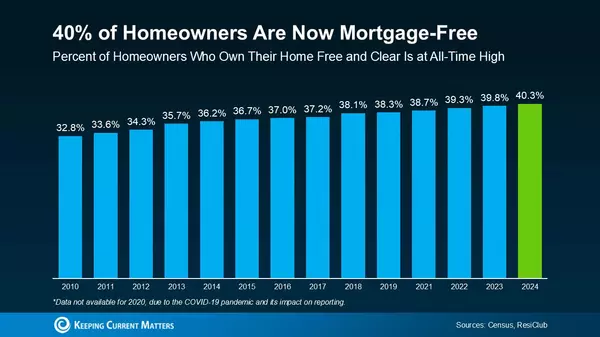
GET MORE INFORMATION


